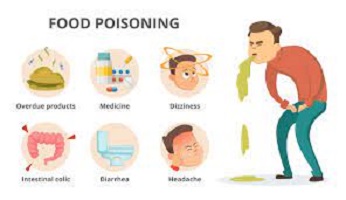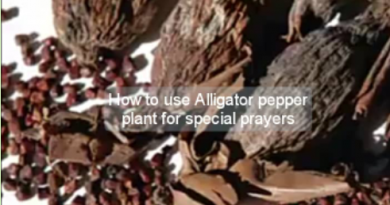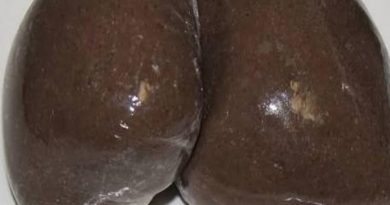How to Recover From Food Poisoning Fast in Nigeria
How to Recover From Food Poisoning Fast, please Watch >>>>>
Food poisoning, a type of foodborne illness, is a sickness people get from something they ate or drank.
The germs or other harmful components in the food or beverage are the causes.
Symptoms of Food Poisoning
Vomiting, diarrhea, and upset stomach are common signs. Typically, after eating the food, symptoms appear hours or even days later.
Most people only have minor illnesses, which heal on their own. The poisoning can occasionally result in serious illness or complications.
Rest and hydration are recommended until you feel better to avoid becoming dehydrated. Even if you can only sip, make an effort to drink plenty of water.
Eat whenever you feel like it, but until you start to feel better, try small, light meals and stick to bland foods like toast, crackers, bananas, and rice.
How long does it take to recover from food poisoning?
Within 12 to 48 hours, the majority of people fully recover from the most typical types of food poisoning.
The poisoning can lead to serious complications in some cases. In the US, food poisoning-related deaths in otherwise healthy people are uncommon
What drink helps food poisoning go away?
Prior to recovering, it’s crucial to replace any fluids you lost due to illness. The best way to do this is to consume fluids that have electrolytes in them.
The best liquids for treating food poisoning include;
- Oral rehydration solutions.
- Watered-down juice;
- Broth
How can I get my stomach back to normal after food poisoning?
The objective when reintroducing food after a case of food poisoning is to consume foods that are simple to digest.
Usually bland, low-fat, low-fiber foods are part of a diet for upset stomachs. The BRAT diet is one variation of this.
Dishes to Try
- Banana
- Applesauce
- Rice
- Toast
When to see a doctor ~ Children and Infants

Vomiting and diarrhea can speedily cause low levels of body fluids, also called dehydration, in infants and children. This may cause serious illness in infants.
Make a call to your child’s health care provider if your child’s symptoms include vomiting and diarrhea and any of the following:
- Unusual changes in behavior or thinking.
- Weakness
- Excessive thirst.
- Little or no urination.
- Dizziness
- Diarrhea that lasts more than a day.
- Vomiting often.
- Stools that are black or tarry.
- Stools that have blood or pus.
- Severe pain in the stomach or rectum.
- Any fever in children under 2 years of age.
- Fever of 102 degrees Fahrenheit (38.9 degrees Celsius) or higher in older children.
- History of other medical problems.
When to see a doctor ~ Adults
Adults should see a doctor/health care provider or get emergency care if the following occurs:
- Nervous system symptoms, such as blurry vision, muscle weakness, and tingling of the skin.
- Vomiting often.
- Diarrhea that lasts more than three days.
- Changes in thinking or behavior.
- Fever of 103 degrees Fahrenheit (39.4 degrees Celsius).
- Symptoms of dehydration — excessive thirst, dry mouth, little or no urination, severe weakness, dizziness, or lightheadedness.
Is foodborne illness spreadable? Is food poisoning contagious?
By definition, food poisoning is not contagious. It’s a disease that a person contracts after consuming tainted food.
Additionally, outbreaks can happen when lots of people consume contaminated food.
Therefore, unlike other infections, the illness in these outbreaks is not transmitted from person to person.
What are food poisoning’s initial symptoms? What are the 1st signs of food poisoning?
The following are the signs of food poisoning:
- Diarrhea
- Stomach cramps or pain.
- Nausea
Consult a physician if you experience any severe symptoms, such as:
- Bloody diarrhea.
- More than three days of diarrhea.
- High fever (102 °F or higher)
- Frequent vomiting makes it difficult to swallow liquids.
How soon does food poisoning start to manifest?
The signs of food poisoning typically appear one to two days after consuming contaminated food, though they can appear up to several weeks later.
The primary signs are: feeling unwell (nausea) vomiting
Types of food poisoning ~ what are the 4 types of food poisoning?
Types of infection
- Campylobacter bacteria are the most frequent source of food poisoning in the UK.
- Frequently, raw or undercooked meat, raw eggs, raw milk, and other dairy products contain salmonella bacteria.
- Listeria
- Escherichia coli (E. coli)
- Shigella
- Viruses
- Parasites
Mild food poisoning symptoms ~ what happens in mild food poisoning?
Vomiting, diarrhea, and upset stomach are common signs of food poisoning.
Typically, after eating the food, symptoms appear hours or even days later.
Most people only have minor illnesses, which heal on their own.
Food poisoning causes ~ what is the main cause of food poisoning?
An illness called food poisoning is brought on by consuming tainted food.
Most people recover without treatment in a few days and it’s typically not serious.
The food is typically contaminated by bacteria, such as salmonella or Escherichia coli (E. coli), or a virus, like a norovirus, in cases of food poisoning.
When does food poisoning start?
The signs of food poisoning typically appear one to two days after consuming contaminated food, though they can appear up to several weeks later.
The primary signs are:
Feeling sick (nausea) and vomiting.
How soon do you vomit after food poisoning?
The signs of food poisoning typically appear one to two days after consuming contaminated food, though they can appear up to several weeks later.
The main signs and symptoms are nausea and vomiting.
Food poisoning medication ~ what medications help with food poisoning?
IAdults can occasionally treat diarrhea brought on by food poisoning with over-the-counter medications like loperamide link (Imodium) and bismuth subsalicylate link (Pepto-Bismol, Kaopectate).
How long does adult food poisoning last?
Food poisoning rarely causes serious complications and usually improves within a week.
Usually, you can take care of your child or yourself at home.


